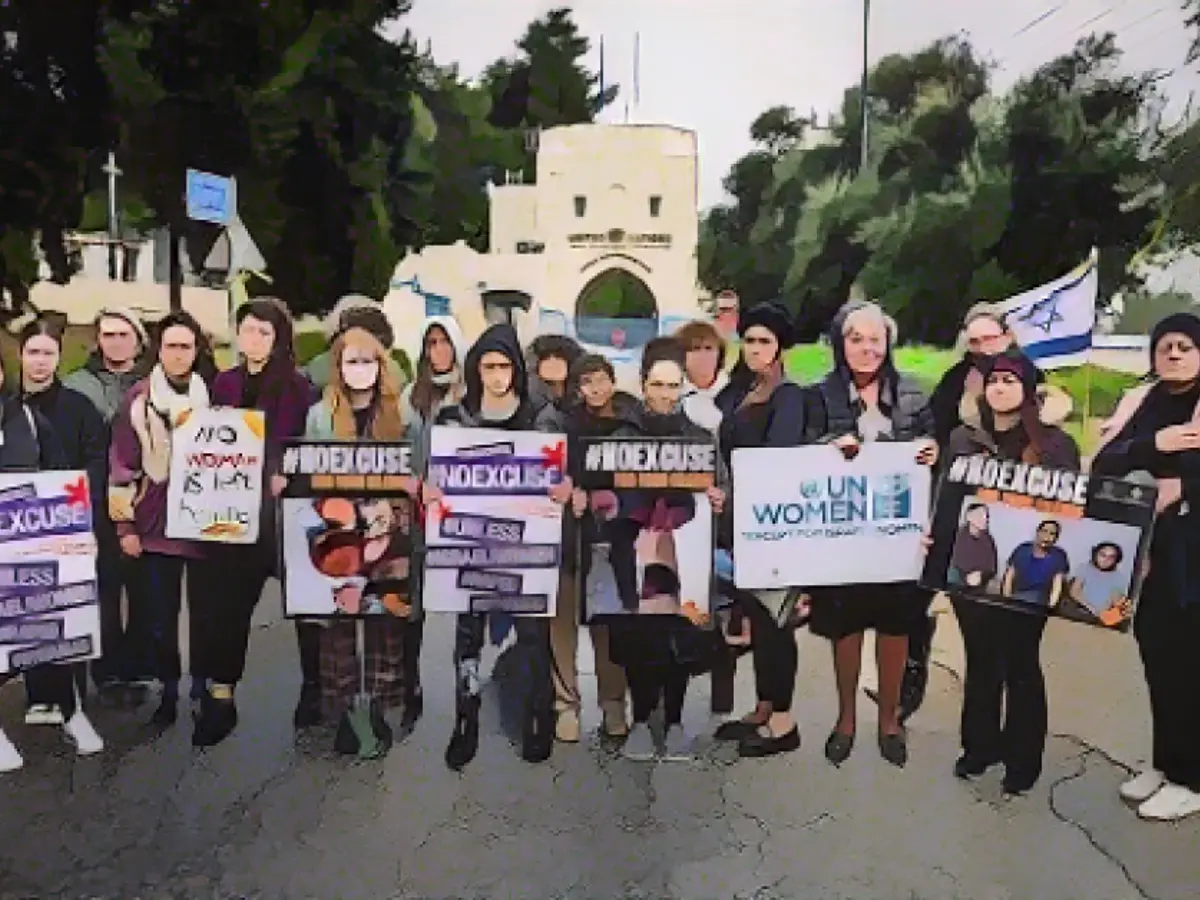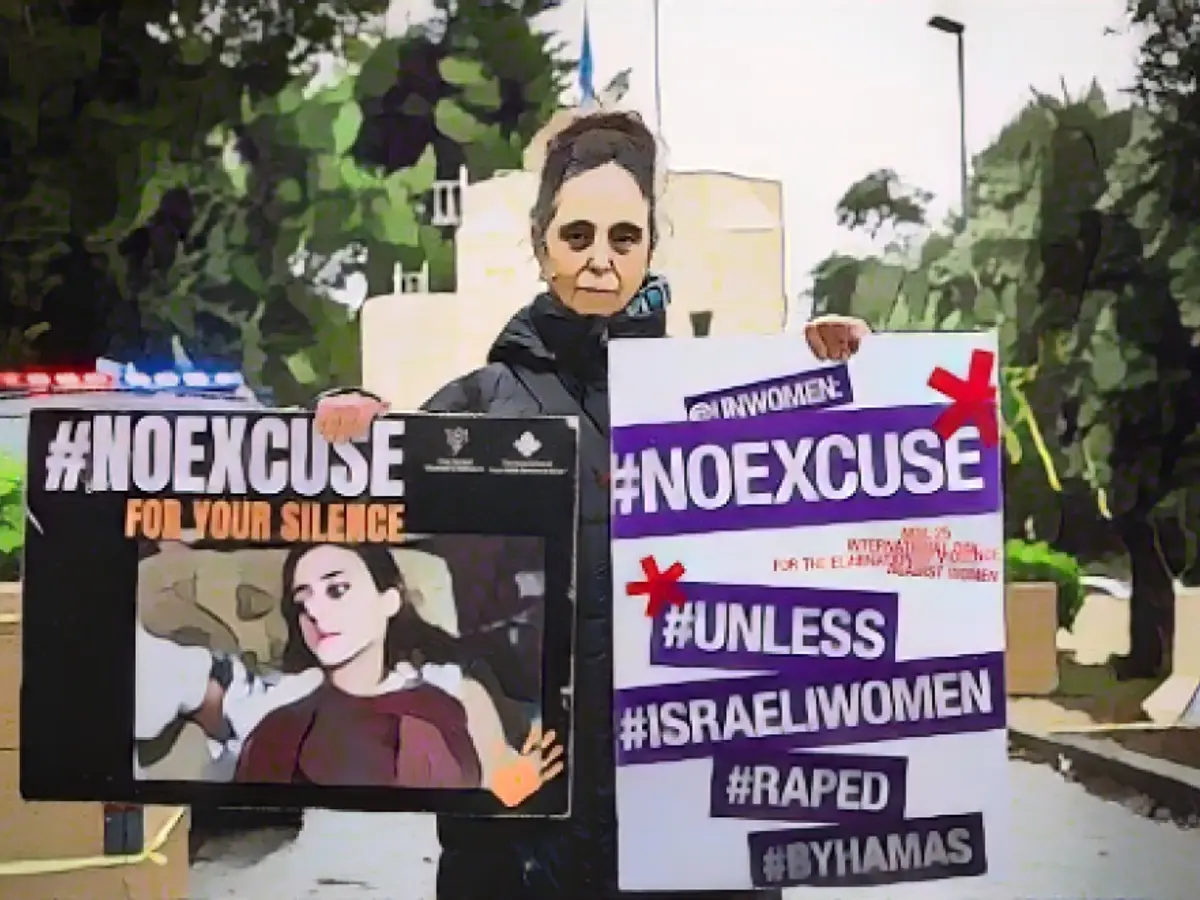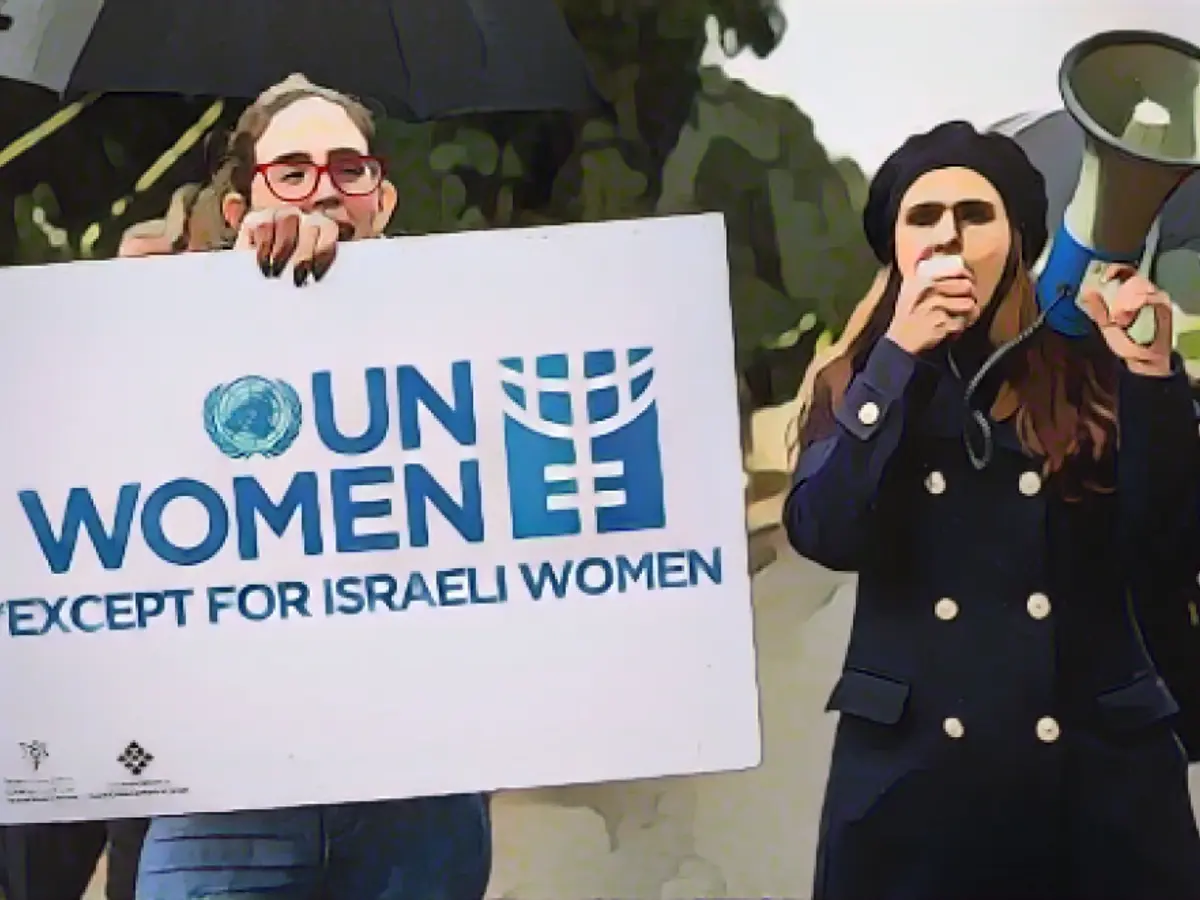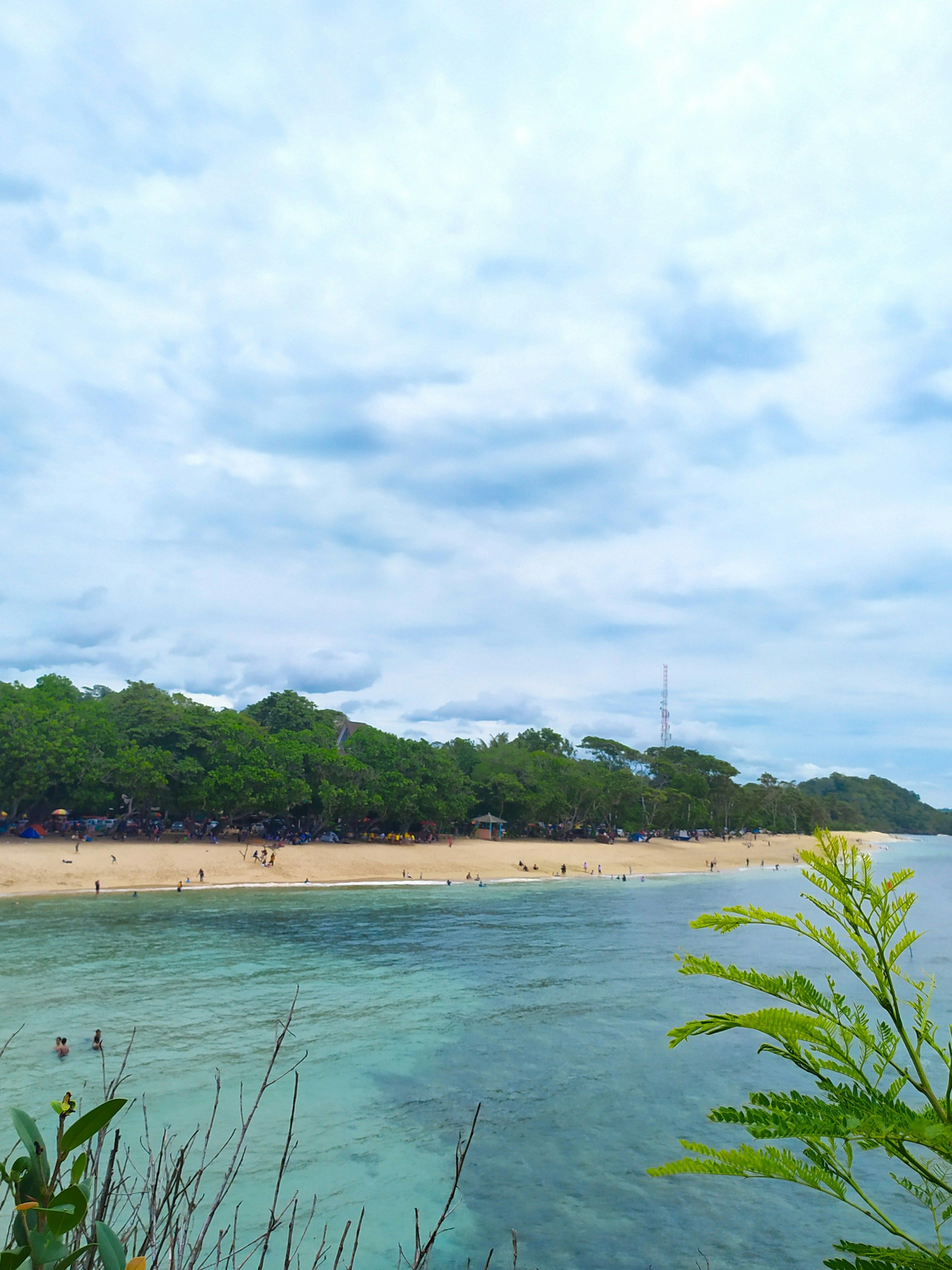The Shocking Indifference of the UN towards Israeli Women's Plight
What a shame!
On October 7, Palestinian militants brutally assaulted and raped women in Israel and kidnapped numerous girls and women in the Gaza Strip.
▶︎ By the end of November, "UN Women" posted a brief message on its social media platform, X: They were "alarmed by the reports of gender-based violence on October 7" and demanded an "investigation." The urgency was akin to an afterthought, given that the investigation was already underway.
Prior to this, "UN Women" had condemned the "brutal attacks by Hamas on October 7." However, even this tepid censure was too harsh for the organization, which purports to advocate for feminist issues. The statement was swiftly retracted, and the perpetrators were no longer identified.
Roth: "It's so bitter and depressing"
Michael Roth (53, SPD), the Chairman of the Committee on Foreign Affairs, came forth on X: "It took UN Secretary-General Antonio Guterres 55 long days to criticize the vile acts against Israeli women by Hamas terrorists. 'UN Women' spoke out after 57 days. But no empathy, no solidarity. It's so bitter and depressing."
German organizations took their time to voice their displeasure publicly in response to the heinous act committed by Hamas.
▶︎ For instance, the "Centre for Feminist Foreign Policy" (CFFP), which collaborates with Annalena Baerbock's (42, Greens) Foreign Office and, by its own admission, is dedicated to a "feminist foreign policy."

The UN's Behavior is Unconscionable
The United Nations, as usual, is an entirely different story. Israeli women demonstrated outside the UN office in Jerusalem for days against the UN's disgraceful silence.
Despite accounts of ghastly rapes from victims and some apprehended perpetrators, along with photographs of decimated women's bodies without undergarments, and even videos recorded by the terrorists showcasing abducted women with bleeding wounds in their private areas, there is still no widespread outcry from feminist organizations, no "#metoo," and merely a handful of calls to believe Israeli women.

"I have always believed in the equality of all people," says Hagit. "But after October 7, we had to learn that not all people are equal; that there are different standards, that the mass gender-based violence against Israeli women, these truly unimaginable atrocities, are simply completely disregarded."
This disturbing reality terrifies Hagit, she says. "The Hamas leaders have publicly declared their intention to repeat October 7. My daughter only sleeps with a large knife by her side due to fear, and I too have acquired a weapon."
Hagit, who previously sang in Germany for many years, is also disappointed by the deafening silence from German feminists. "I was pleased to witness the German government's sympathies, but unfortunately, I haven't heard any solidarity from German feminists."
Is Rape Prevalent in Gaza as Well?
Did Rape Occur in Gaza?
- Despite the ongoing Middle East conflict between Israel and Hamas, it is alarming to observe the scant response from international and German feminist organizations in response to the brutal rapes and abductions of women in Israel and Gaza.
- The international community, including prominent organizations such as "UN Women," has been criticized for their silence regarding the rapes in Gaza, while promptly condemning Hamas's attacks. This apparent inconsistency raises questions about the genuine commitment to gender equality in foreign policy.
- The silence of feminist organizations and individuals in the West in the face of such abhorrent acts against Israeli women contributes to the feeling of vulnerability and isolation among Israeli women living under constant threat of violence.
Source:
Enrichment Data:
International and German feminist organizations have expressed strong condemnation of the brutal rapes and abductions of women in Israel and Gaza during the Middle East conflict with Hamas. Here are some key points:
- National Council of Jewish Women (NCJW):
- The NCJW denounced Donald Trump's proposal to forcibly displace Palestinians from Gaza, emphasizing the historical pain of persecution and displacement that Jews have experienced and the need to speak out against injustice[4].
- They condemned the forced removal of Palestinians from Gaza, highlighting that such decisions should be deeply personal and not imposed by external authorities[4].
- United Nations Special Envoy on Sexual Violence in Conflict:
- Pramila Patten, the UN's special envoy, reported "reasonable grounds" to believe that sexual assaults, including rape and gang rape, took place during the October 7 attacks. However, her report was criticized for not being a full and legal investigation, lacking the mandate to investigate sexual crimes on the ground[3].
- International Human Rights Organizations:
- Human Rights Watch, Amnesty International, and Physicians for Human Rights Israel have condemned the alleged confessions of Hamas attackers, suggesting they were likely extracted under torture and should not be considered credible evidence[3].
- Criticism of Testimonies and Investigations:
- Certain testimonies, such as those claiming genital mutilation and specific instances of rape, have been questioned for their credibility. For example, Haaretz reported that there were no signs of sexual relations or mutilation on the bodies at Shura Base, and forensic pathologists were unable to fully examine all bodies due to their deteriorated state[3].
- UN Independent International Commission of Inquiry:
- The UN's commission found that both Hamas and Israel had committed sexual violence and torture, but it was unable to independently verify some testimonies due to lack of access to witnesses and crime scenes, and Israel's obstruction of investigations[3].
The response of international and German feminist organizations has been criticized for various reasons:
- Lack of Concrete Evidence: Some reports and testimonies have been discredited due to lack of concrete forensic evidence or contradictory claims.
- Methodological Limitations: The UN's special envoy's report was criticized for not being a full investigation, highlighting the need for a more comprehensive and legally mandated inquiry.
- Political Obstruction: The involvement of both Hamas and Israeli authorities in denying or obstructing investigations has hindered the ability to gather accurate and comprehensive evidence.
These criticisms emphasize the complexity and sensitivity of addressing sexual violence in conflict zones, where political and methodological challenges often complicate the pursuit of justice and accountability.








